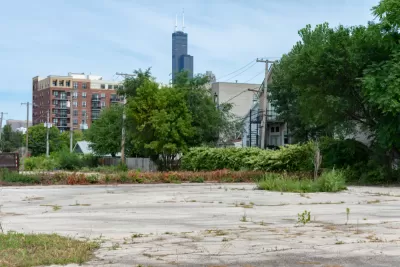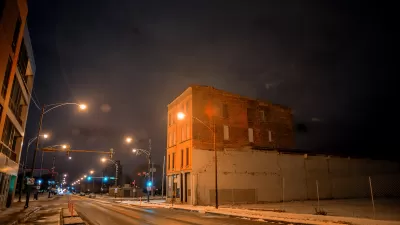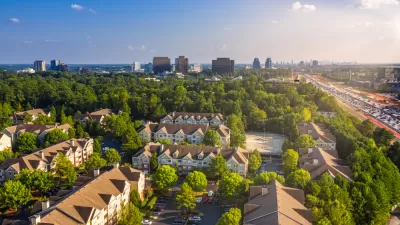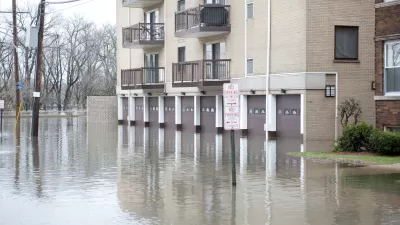The city hopes its incentives to buyers will help convert the thousands of city-owned vacant lots into housing, green space, or other productive uses.

In an effort to deter crime and create more affordable housing units in the city, Chicago is speeding up its process for selling city-owned vacant lots to buyers at a low cost. The city has identified 4,000 lots “clean and ready for sale” out of the 10,000 properties owned by the city, reports Mackenzie Hawkins for Bloomberg CityLab.
“Turning lots into housing and community spaces like gardens, playgrounds and shopping centers is part of Mayor Lori Lightfoot’s strategy to boost investments in the city’s south and west sides,” Hawkins explains. The endeavor is based on similar projects that have led to declines in violence and crime in other cities. “Efforts to restore vacant lots in Philadelphia reduced gun violence by 29%, burglaries by 22%, and nuisance crimes like vandalism and noise complaints by 30%, according to a study of 541 lots by researchers at Columbia University that Chicago officials have referenced when presenting their plan.”
To boost the project, “the city has allocated $87 million in federal and bond funding to vacant lot revitalization under the Chicago Recovery Plan, allowing it to undertake a comprehensive survey of all empty plots.” The lots will primarily be sold for residential construction, but the city will also accept applications for commercial and open space projects.
FULL STORY: Chicago Plans to Speed Up Vacant Lot Sales in Bid to Curb Crime

Manufactured Crisis: Losing the Nation’s Largest Source of Unsubsidized Affordable Housing
Manufactured housing communities have long been an affordable housing option for millions of people living in the U.S., but that affordability is disappearing rapidly. How did we get here?

Americans May Be Stuck — But Why?
Americans are moving a lot less than they once did, and that is a problem. While Yoni Applebaum, in his highly-publicized article Stuck, gets the reasons badly wrong, it's still important to ask: why are we moving so much less than before?

Using Old Oil and Gas Wells for Green Energy Storage
Penn State researchers have found that repurposing abandoned oil and gas wells for geothermal-assisted compressed-air energy storage can boost efficiency, reduce environmental risks, and support clean energy and job transitions.

Minneapolis Bans Rent-Setting Software
Four cities have enacted restrictions on algorithmic software that can inflate rent costs.

Oakland to Add 244 New EV Chargers
Oakland plans to launch its new charging network at eight locations by the end of 2025.

Jane Goodall Inspires with Message of Hope, Resilience, and Environmental Action
Speaking in Pasadena, Jane Goodall offered a hopeful and inspirational message, urging global compassion, environmental responsibility, and the power of individual action to shape a better future.
Urban Design for Planners 1: Software Tools
This six-course series explores essential urban design concepts using open source software and equips planners with the tools they need to participate fully in the urban design process.
Planning for Universal Design
Learn the tools for implementing Universal Design in planning regulations.
Heyer Gruel & Associates PA
City of Moreno Valley
Institute for Housing and Urban Development Studies (IHS)
City of Grandview
Harvard GSD Executive Education
Salt Lake City
NYU Wagner Graduate School of Public Service
City of Cambridge, Maryland





























